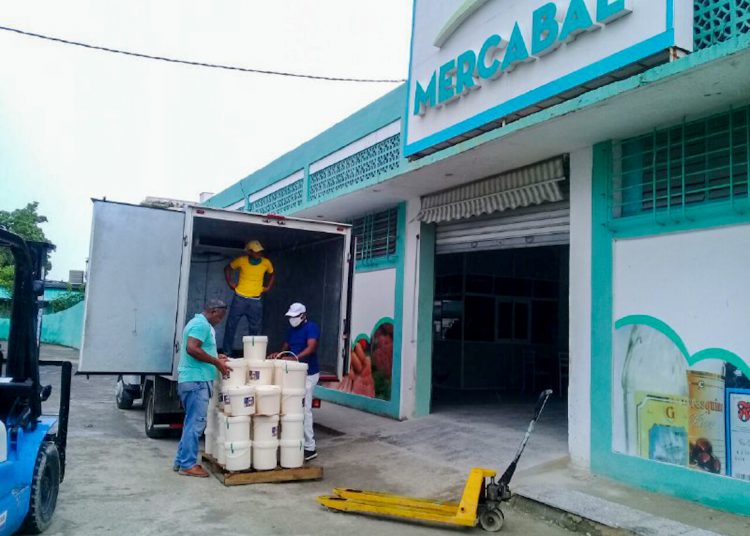Mercabal, the first wholesale market authorized in Cuba to sell products to private businesses and non-agricultural cooperatives dedicated to gastronomy, has signed more than 200 contracts in just three days since its opening.
Located in Nuevo Vedado, in Havana, the new market will only sell merchandise in Cuban pesos (CUP), through a magnetic card, to owners of cafes, restaurants, bars, bakeries and pastry stores, the Agencia Cubana de Noticias news agency reported.
Mercabal’s administrator, Luis Hernández, explained that market sale services include transportation of products for customers who ask for it, “according to a distance fee, and always in CUP.”
He said that the market has expanded the quantity and diversity of its food offer, whose prices have a 20% discount in order to improve the quality and service to the population.
For now, in the market offers―always in large formats or volumes―rice, flour, eggs, oil, sugar, mineral water, mayonnaise, tomato sauce, pasta, shrimp, chocolate and meat products, Hernández explained.
Cited by the source, the market administrator said that the per capita quantity of merchandise offered will depend on the availability of those products.
He explained that to buy Cristal beer, customers must hand in a box of empty bottles for each box they purchase in the market, due to the packaging deficit facing the national beer industry.
Mercabal, which already functioned as a wholesale market for gastronomy cooperatives in the Cuban capital, takes on the new task of supplying food products to non-state businesses, based on the economic strategy recently announced by the Cuban government for the post-COVID-19 recovery.
Cuban government eliminates tax on dollar and opens more stores in foreign currencies
The package of measures covers 16 key areas, with emphasis placed on agriculture and food sovereignty, explained Minister of Economy Alejandro Gil.
The also deputy prime minister announced, without advancing dates, that they are working on the future start-up of SMEs, both in the private and state sectors, and in expanding incentives for foreign direct investment, especially in food production.
Among other measures, the Cuban government lifted the tax on the USD, opened 72 retail stores for the sale of food, grooming and hardware products in freely convertible currency.
As part of the program, in August two other wholesale markets must be added in Havana—one in San Miguel del Padrón and the other in Playa—, and others will gradually be opened in the rest of the Cuban provinces.










